Apple Music's Beyoncé Covered Collection Spotlights 6 Rising Black Artists in the Country Scene — Exclusive
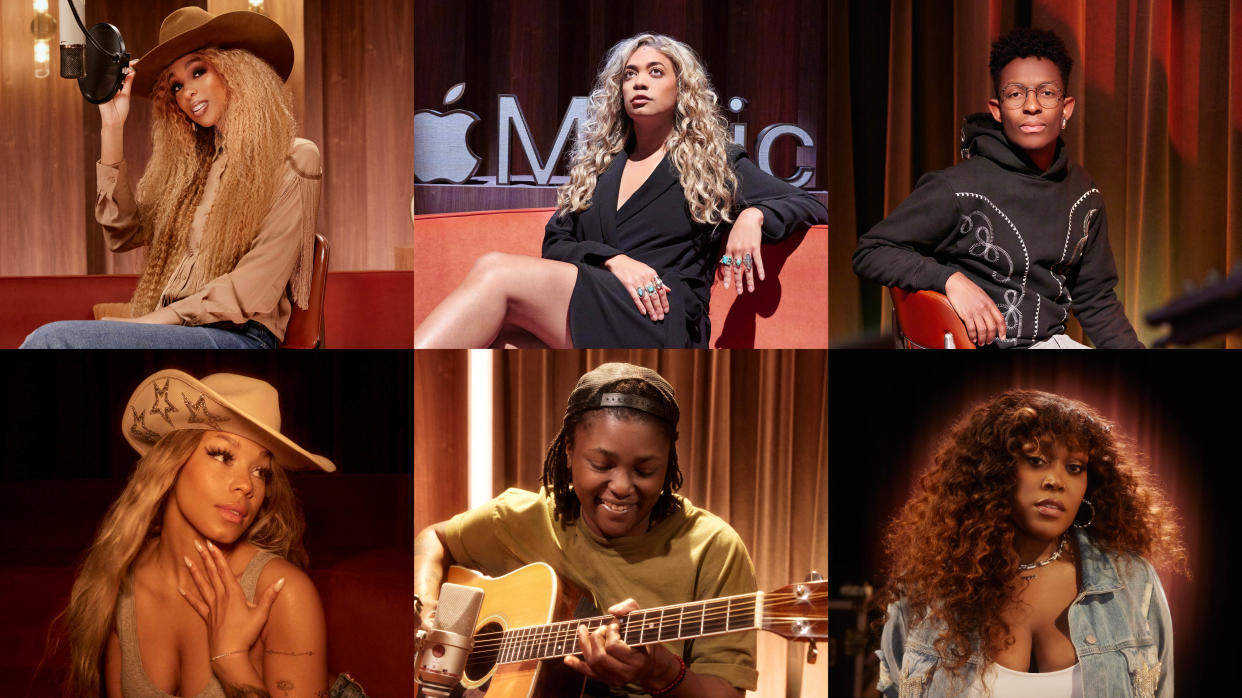
Composite: Courtesy of Apple Music
When Beyoncé released Cowboy Carter earlier this year, she said it was the best music she’s ever made, even if it wasn’t what everyone expected of her.
Just days before the album’s release, the star also got candid about its genesis, admitting it was “born out of an experience” in which she “did not feel welcomed,” which made her dive deeper into the history of Country music and its Black roots.
“It feels good to see how music can unite so many people around the world while also amplifying the voices of some of the people who have dedicated so much of their lives educating on our musical history,” Beyoncé said at the time — and three months after the projects’ release, the education continues, and Cowboy Carter’s influence reigns supreme.
Speaking to The Hollywood Reporter recently, Beyoncé admitted that while she’s “very grateful and humbled for the extraordinary success of the new album,” numbers are not high on the priority list of the feats she's achieved with Cowboy Carter. Instead, she's particularly proud of having opened the doors for others to come through.
“When you are breaking down barriers, not everyone is ready and open for a shift. But when I see Shaboozey tearing the charts up and all the beautiful female Country singers flying to new heights, inspiring the world, that is exactly what motivates me,” she told the publication. “I’m honored to introduce so many people to the roots of so many genres. I’m so thrilled that my fans trusted me. The music industry gatekeepers are not happy about the idea of bending genres, especially coming from a Black artist and definitely not a woman.”
To celebrate Black Music Month, Apple Music is continuing what Beyoncé started and honoring Cowboy Carter’s influence further by releasing the Beyoncé Covered collection, a special Apple Music Nashville Sessions project featuring live-recorded Country covers of the star’s catalog performed by six Black rising artists leaving their mark in the Country scene: Tiera Kennedy, Madeline Edwards, BRELAND, Tanner Adell, Joy Oladokun, and Brittney Spencer. (And yes, you might already recognize some of these names from Cowboy Carter.)
“Beyoncé’s Cowboy Carter is a tribute to the history of Black music, and especially Country music. It honors pioneering musicians whose outlaw spirit paved the way for her — and for many other artists who’ve been inspired to add their unique stories to the ever-evolving genre,” Apple Music said in a press release. “To celebrate her genre-redefining album and her profound impact on music in general, six Black artists pay homage to Queen B by putting their own spin on some of her greatest hits — new and old — for this special Apple Music Nashville Session.”
You can listen to the Beyoncé Covered collection of Apple Music Nashville Sessions here and check out some exclusive behind-the-scenes videos, photos, and quotes from the six artists featured below.
Tiera Kennedy, “1+1”
Teen Vogue: Where were you when you got the offer to participate in the Beyoncé Covered collection? And what was your reaction?
Tiera Kennedy: My manager called and let me know about the project! I have an Apple Music Radio show called The Tiera Show, and I also had the honor of singing on “Blackbiird” and “Tyrant” on Cowboy Carter, so it’s like my two worlds colliding.
TV: How and why did you pick "1+1"?
TK: “1+1” has always been one of my favorite Beyoncé songs. There's this video of her singing it live at Glastonbury and then another one of her practicing it in a dressing room, and to me, they both showcase why she is one of the best vocalists of our time. It's a love song but I love how she attacks the vocal with so much passion and grit.
TV: What was your first introduction to Beyoncé as an artist?
TK: I honestly don't remember a time when I didn't listen to Beyoncé. Destiny's Child was always playing in the car and around the house. For me, it went beyond just the music. Her work ethic, the energy and accuracy of her vocals and performance on stage — she's always been the example for me of what to strive for.
TV: What does Beyoncé mean to you?
TK: I've been in Nashville for about eight years just waiting for my moment. Never in a million years would I have imagined that moment would be a feature on a Beyoncé record. It means the world to have that kind of validation from a literal living legend. She shined a light on so many up-and-coming artists like me, and I think that really speaks to the kind of person she is and how she feels in her heart. She didn't just make a record with great songs. She made a record that made people think, have discussions, and she made space for the next generation of artists.
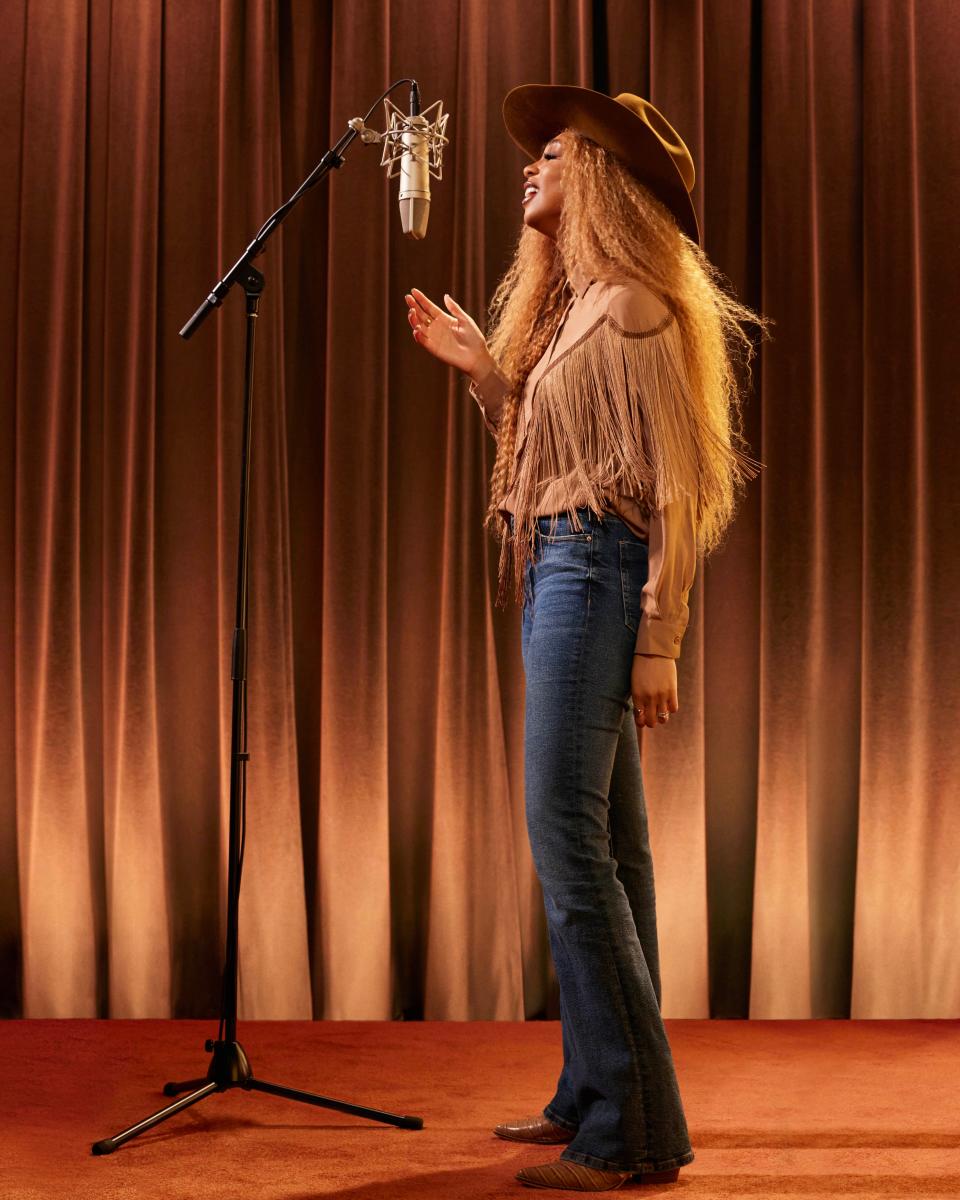
Tiera Kennedy in Apple Music Sessions: Beyoncé Covered.
Alyssa Barker/Courtesy of Apple MusicTV: What are some of the other artists that have influenced your career?
TK: Shania Twain has been such a champion of mine, which I honestly can't believe that's something I can say. I met her for the first time a few years after just moving to Nashville. I was still trying to figure out who I was as an artist and I remember she gave me a piece of advice that has stuck with me to this day. She said, “There's always going to be people that want to try and change you but you have to remember to stay true to you at the end of the day.” Whenever I’m doubting myself I always go back to this.
TV: For people who are just getting to know you through this collection, why should they keep listening to your music after?
TK: If you liked my cover, you'll definitely like my original music. I describe my sound as R&B Country, which are two genres I grew up listening to. A lot of Beyoncé and a lot of Dolly. I want to make music that makes people feel something — whether that’s to make you dance may you cry.
TV: How do you feel being a Black Country artist in this day and age?
TK: We're living in a really beautiful time in music right now. I think more and more people are realizing Country isn't just one thing. I mean, we're kinda poppin' right now! Everybody's flourishing in their own lane, and the fans are here to support.
TV: What does the future of Country look like to you?
TK: Country music right now is diverse and exciting. No matter what your vibe is, there's a different kind of Country out there for everybody. I hope more and more artists continue to speak their truth through music and feel the confidence to make art that’s true to them.
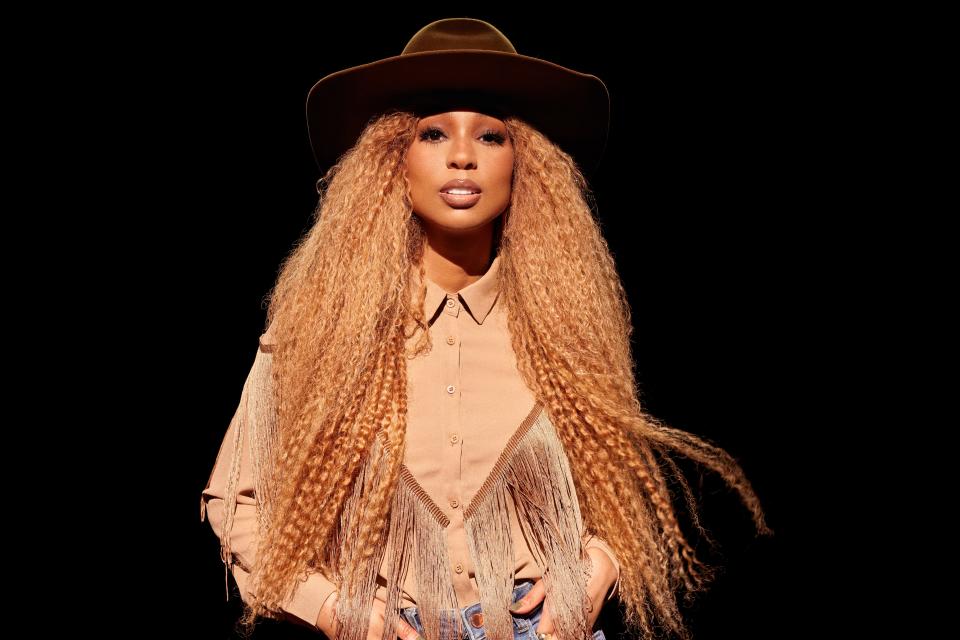
Tiera Kennedy in Apple Music Sessions: Beyoncé Covered.
Alyssa Barker/Courtesy of Apple MusicMadeline Edwards, “Halo”
TV: Where were you when you got the offer to participate in the Beyoncé Covered collection?
Madeline Edwards: I think I might've been in my backyard drinking a beer with my dog when I got the call. I'm pretty sure we both got the zoomies when I got the news and then sprinted around the backyard like raging idiots.
TV: Why did you pick “Halo”?
ME: When I worked as a lounge pianist and singer in Houston for over a decade, I played many songs that seemed just custom-made for my voice. Songs like “At Last” by Etta James, “You Know I’m No Good” by Amy Winehouse, and, of course, “Halo” by Beyoncé. There was always something about that particular ballad that would make the room perk up and send me home with an extra hundred or so in my pocket. And you never know what that hundy would go towards — sometimes it'd help me through school, sometimes it'd help my mom pay the bills. So, it always seemed like a special song to me. I didn't even think twice when Apple Music asked me which one I wanted to do. I knew “Halo” was the one.
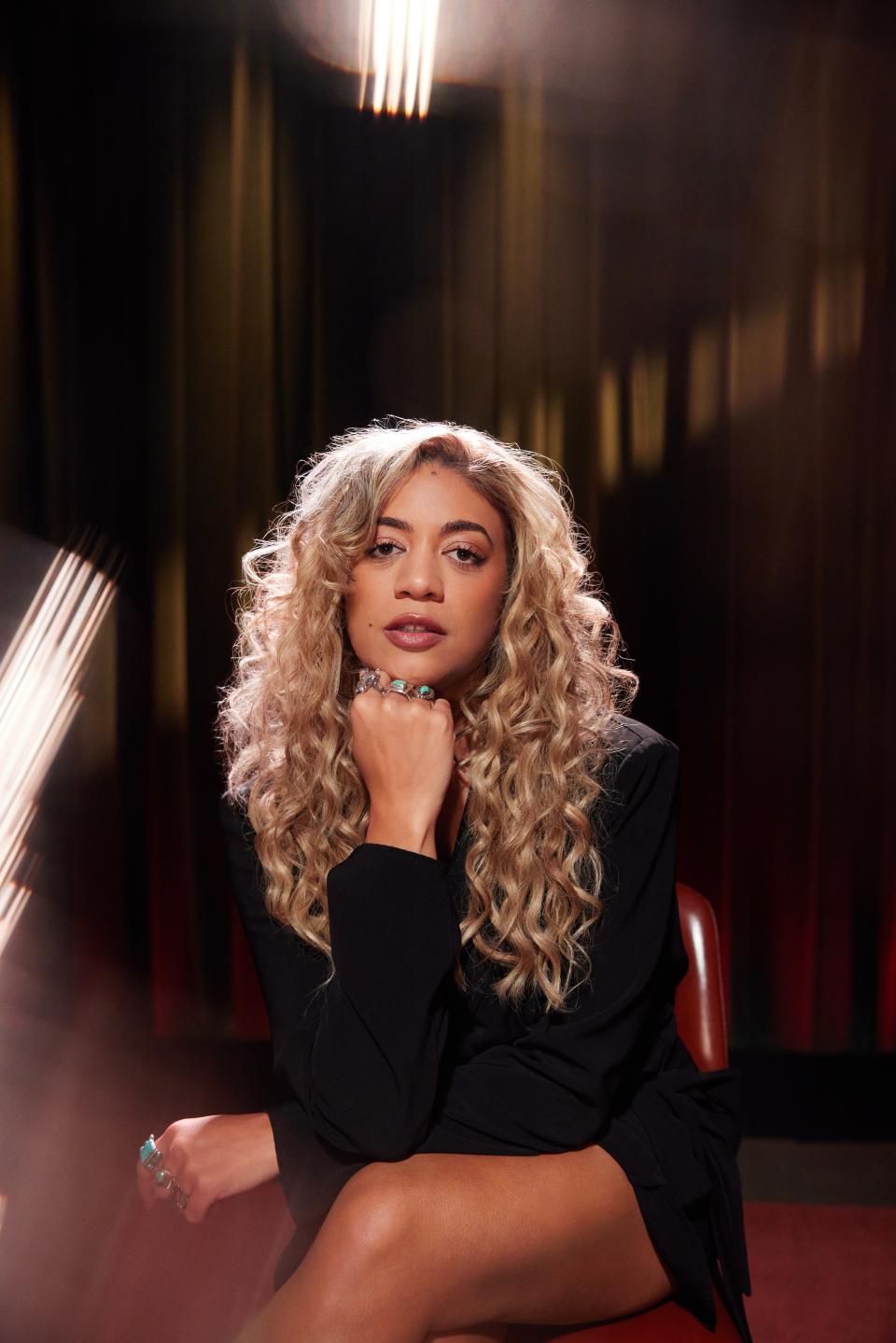
Madeline Edwards in Apple Music Sessions: Beyoncé Covered.
Diana King/Courtesy of Apple MusicTV: Can you tell me what was your first introduction to Beyoncé as an artist?
ME: I was a small child when I was first introduced to Destiny's Child, therefore inevitably getting introduced to the one and only Beyoncé. I was raised on a strict diet of jazz and classical music when I was young, so I think my appreciation for Beyoncé as an artist grew over time, especially after I moved to Houston with my family as a kid. You can tell that city raised her, and it was a point of similarity for me as a young artist, figuring out my way in my own craft. It is cool to see how geographically a city could maybe even instill the same grit, unapologetic confidence, and fearlessness in her that I often identify in myself at times.
TV: Who are some other artists that have influenced your career?
ME: I've been influenced by an unbelievable amount of artists. I never stop listening to music. It feeds my soul and my curiosities, so I just carry a collection of influences throughout my life as I grow in my art. [My] influences [include] Ella Fitzgerald, Etta James, Ray Charles, Otis Redding, Django Reinhardt, Johnny Cash, Dolly Parton, Willie Nelson, Ray Price, The Carpenters, The Bee Gees, The Beatles, Michael Jackson, Shania Twain, James Taylor, Lauryn Hill, Carol King, Bonnie Raitt, Amy Winehouse, Adele, John Mayer, Kacey Musgraves, Blake Mills, Khruangbin, Leon Bridges, Gary Clark Jr., Anderson .Paak, Tame Impala, Childish Gambino, Gregory Alan Isakov, Bon Iver, Alicia Keys, Chris Stapleton… The list will go on for as long as you'll let me…
TV: For people who are just getting to know you through this collection, why should they keep listening to your music after?
ME: My music is a never-ending story, whether it's my own or a collection of moving, tangible stories that I hear from people like you and me every day. That is the most beautiful part of my job. I get to sit and break bread with beautiful humans from all walks of life, I get to sit in that silence and community, watch the world around me, be a careful observer of the world around me and interpret what culture is needing from the pen and the song in that very moment. It's a magical feeling when you can center yourself enough to find it, which most often comes with solitude, a connection to self, and a healthy relationship with the world and your own soul.
We're all in search of the feeling that we can't quite put words to, right? With “Halo,” for example, I was given the gift of retelling that story but with my own life experience. My own interpretation of the music and lyrics. I wanted that song — and every song I put out — to be a reflection of a greater story of how I got here, what I’ve survived, and how this power of a joyful life amidst suffering can be accessible for everyone.
TV: What do you feel is the best and worst part about being Black Country artist in this day and age?
ME: The best part is getting to create your own lane and say “f*ck it” to the rest. The worst part is getting asked frequently, “What’s the worst part about being a Black Country artist?"
TV: What does the future of Country look like to you?
ME: It's hard to say at this point in time, but I’m very optimistic about it. The nature of music consumption is expanding far beyond the industry's comprehension of it, which is allowing more artists like me to thrive in unconventional spaces. Music is becoming genreless, which is inviting the listener to wider spaces, including Country. We're going to see artists like Kacey Musgraves, Zach Bryan, Sierra Ferrell, Shaboozey, and even Beyoncé defying the small-mindedness of genre-boxing and expanding the opportunity for success far beyond what radio can provide, and that is very, very exciting for artists right now.

Madeline Edwards in Apple Music Sessions: Beyoncé Covered.
Diana King/Courtesy of Apple MusicBRELAND, “Sandcastles”
TV: Where were you when you got the offer to participate in the Apple Music Nashville Sessions for Beyoncé?
BRELAND: I was on tour when I found out about Apple Music's Beyoncé Covered collection project, and I was super excited. I've been singing Beyoncé songs for fun on my own since I was a kid, so to have the chance to do this professionally was a no-brainer.
TV: Why did you pick your particular song?
B: Obviously, Beyoncé has more hits than everyone, so it was a tough decision to make. I ultimately decided on “Sandcastles” because I don't have a whole lot of opportunities to sing ballads, and I've always thought it was such a beautiful song and story. It also felt a little Country to me, so I thought it might fit.
TV: You said childhood, but do you remember exactly your first introduction to Beyoncé as an artist?
B: I was born in '95, so I feel like Beyoncé has been being played for as long as I can remember. I do recall the early Destiny's Child albums being on repeat as a young child.
TV: What does Beyoncé mean to you?
B: Beyoncé is the gold standard for artistry, in my opinion. The way she evolves with each album, the level of precision that goes into her branding and her live shows, is also unparalleled. What she can do as a vocalist and as a performer is elite, and I have used her as a source of inspiration for my own tours.

BRELAND in Apple Music Sessions: Beyoncé Covered.
Alyssa Barker/Courtesy of Apple MusicTV: What are some of the other artists that have influenced your career?
B: Stevie Wonder, Nelly, and Shania Twain are all artists that have influenced my career; Stevie just as my favorite vocalist, and Nelly and Shania for the ways they've shaped and innovated Country music.
TV: For people who are just getting to know you through this collection, why should they keep listening to your music after?
B: I think what Beyoncé represents is an artist who is fearless to adapt and evolve, and her discography celebrates sonic diversity. Those are all of the same qualities I strive to emulate in my music, and I think I have something for everyone.
TV: What do you feel is the best and worst part of being a Black Country artist in this day and age?
B: I think the best part about being a Black Country artist is that I get to be a part of a movement that is revolutionizing the music industry and the conversations about race in America. We have a long way to go, but knowing that my work is contributing to something bigger than me is a constant source of inspiration. The toughest part is that it feels like we don't always have the same level of support as our white counterparts in the genre, specifically when it comes to Country radio airplay and touring support.
TV: What does the future of Country look like to you?
B: I think the future of Country music will look like America as a whole: diverse artists, different perspectives, different sounds. I'm looking forward to that day.
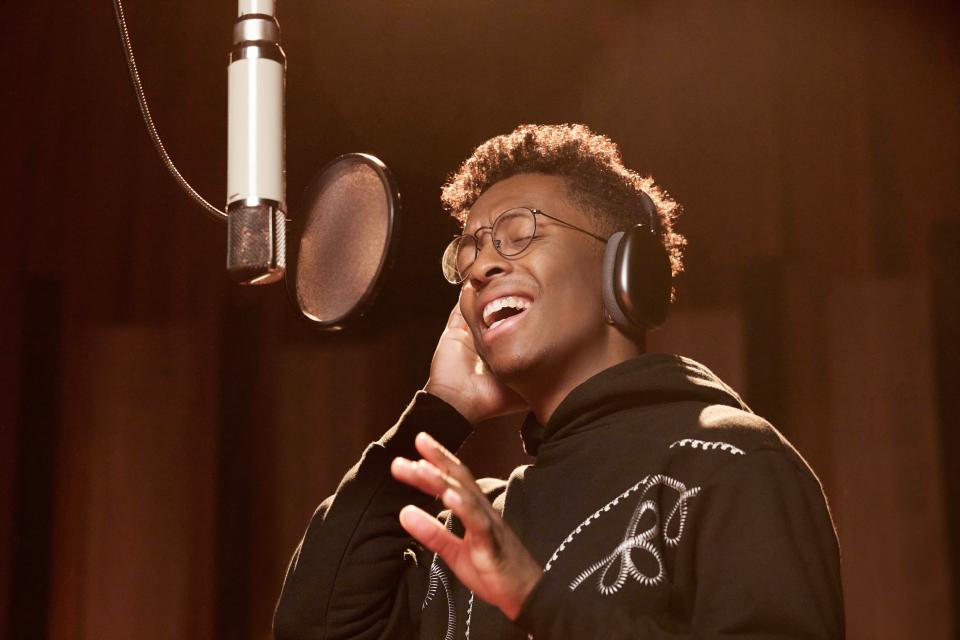
BRELAND in Apple Music Sessions: Beyoncé Covered.
Alyssa Barker/Courtesy of Apple MusicTanner Adell, “Drunk in Love”
TV: Do you remember where you were when you got the offer to participate in the Beyoncé Covered collection?
Tanner Adell: I don't remember where I was exactly, but I was really excited to be a part of it.
TV: Why did you pick “Drunk in Love”?
TA: “Drunk In Love” is just one of my all-time favorites, and my favorite version is actually her live version from Homecoming — the live version has just always slapped to me.
TV: Do you remember your first introduction to Beyoncé as an artist?
TA: Oh, man. Honestly I think it was “Survivor,” it was Destiny's Child. I think at this point I was really little, like car seat little. [It was] maybe 2005 that I heard it on Radio Disney?

Tanner Adell in Apple Music Sessions: Beyoncé Covered.
Alyssa Barker/Courtesy of Apple MusicTV: What does Beyoncé mean to you?
TA: Beyoncé is the epitome of a modern, hardworking woman and mother, and I think that’s just a great example for me in general going forward in my career.
TV: What are some of the other artists that have influenced your career?
TA: Diana Ross, Etta James, obviously Beyoncé, Chappell Roan, Dolly Parton…
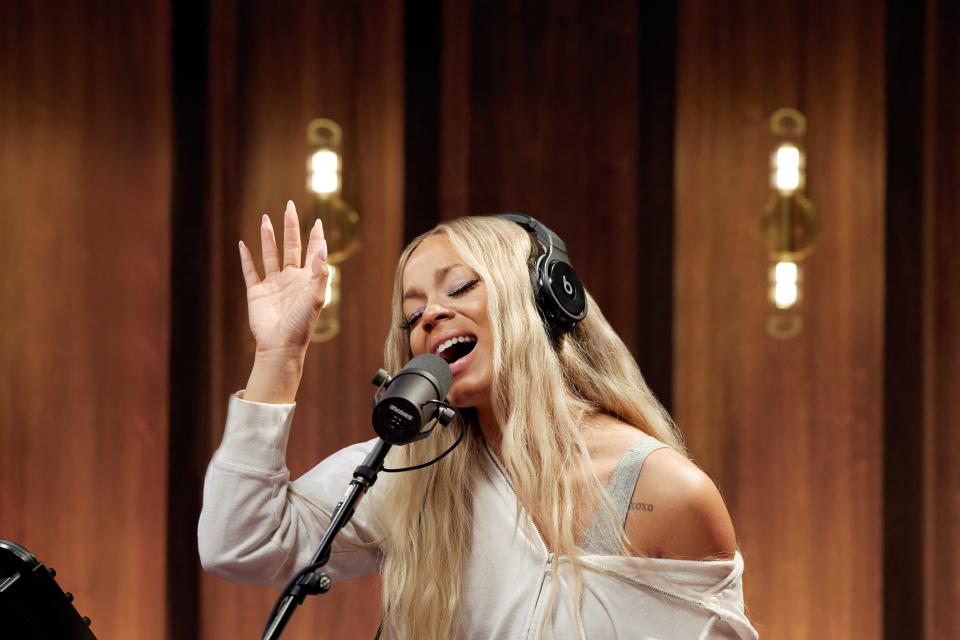
Tanner Adell in Apple Music Sessions: Beyoncé Covered.
Alyssa Barker/Courtesy of Apple MusicTV: For people who are just getting to know you through this collection, why should they keep listening to your music after?
TA: People should keep listening to my music because I am doing something that is really unique and hasn’t really been done before, especially by a female artist. I have a lot to offer.
TV: What does the future of Country look like to you?
TA: To me, and I pray this is true, it looks like me. It looks like people of all backgrounds, all races, all upbringings being able to share their voice and unique perspectives through storytelling that has always been the heart of Country music.
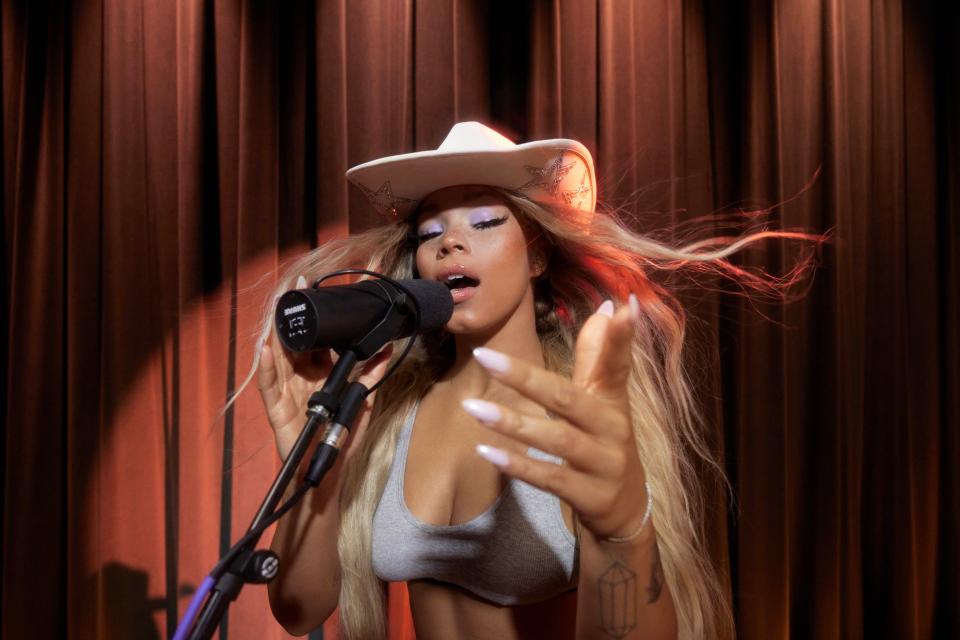
Tanner Adell in Apple Music Sessions: Beyoncé Covered.
Alyssa Barker/Courtesy of Apple MusicBrittney Spencer, “Irreplaceable”
TV: Why did you pick “Irreplaceable”?
Brittney Spencer: I chose “Irreplaceable” because it was one of my favorite songs to sing in talent show competitions on campus in college. There was something about being up there with my guitar, scream-singing with the crowd. This is one of those songs where everyone sings along the whole way through, not just on the hook. I always found that to feel really cool and special.
TV: What was your first introduction to Beyoncé as an artist?
BS: My intro to Beyoncé was Destiny’s Child. I’ve always loved girl groups, the harmonies, the sisterhood, the fashion. Oh my God, THE FASHION. I remember seeing photos of Destiny’s Child wearing lots of Country-themed costumes and cowboy hats. They were so fly and Country. I loved it.
TV: What does Beyoncé mean to you?
BS: Her musicality and ability to own a stage and crowd are just unmatched. She feels nostalgic like she’s always been here, yet so fresh as she continues to evolve and reinvent [and] reintroduce herself and her music. Time after time, she’s helped me make sense of the art I hear and see within my own self.
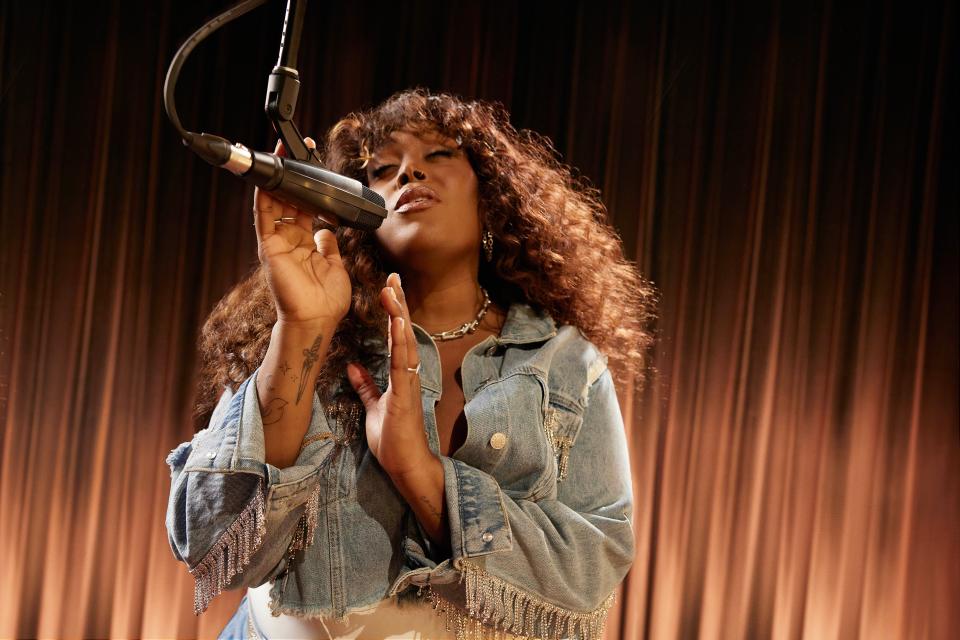
Brittney Spencer in Apple Music Sessions: Beyoncé Covered.
Diana King/Courtesy of Apple MusicTV: What are some of the other artists that have influenced your career?
BS: There are way too many. That’s probably why I wrote my song, “Bigger Than The Song” to list as many as I could for 3 and a half minutes lol. If I could add more names to the list, I'd add in The Chicks, Sade, John Mayer, India Arie, Shania, The Beatles, Loretta Lynn, and Paramore.
TV: For people who are just getting to know you through this collection, why should they keep listening to your music after?
BS: If you like fun, weird stories written by deep, scattered emotions, boy do I have a whole stupid album just for you. [Laughs]
TV: What do you feel is the best and worst part of being a Black Country artist in this day and age?
BS: The best part is having almost like a blank canvas, creatively. There haven’t been many Black women repping Country in a big way on the world stage before a few years ago. Subsequently, I don’t have much of a box to try and navigate or get pressured into fitting, because so much about what it means to be Black in Country music is still being revealed, to the artists, the industry, and the fans.
The worst part about being Black in Country is finding out at every level of my career that there are very cultural [and] race-specific challenges I face that lots of my friends and colleagues don’t. The challenges I face as a woman are a close second. Many Black Country artists are pretty vocal about our collective challenges, and we’re seeing the industry slowly work to change this. Women in my genre are still pretty silent about the challenges women face here, which makes this fight more challenging, in my opinion.
TV: What does the future of Country look like?
BS: Girls.
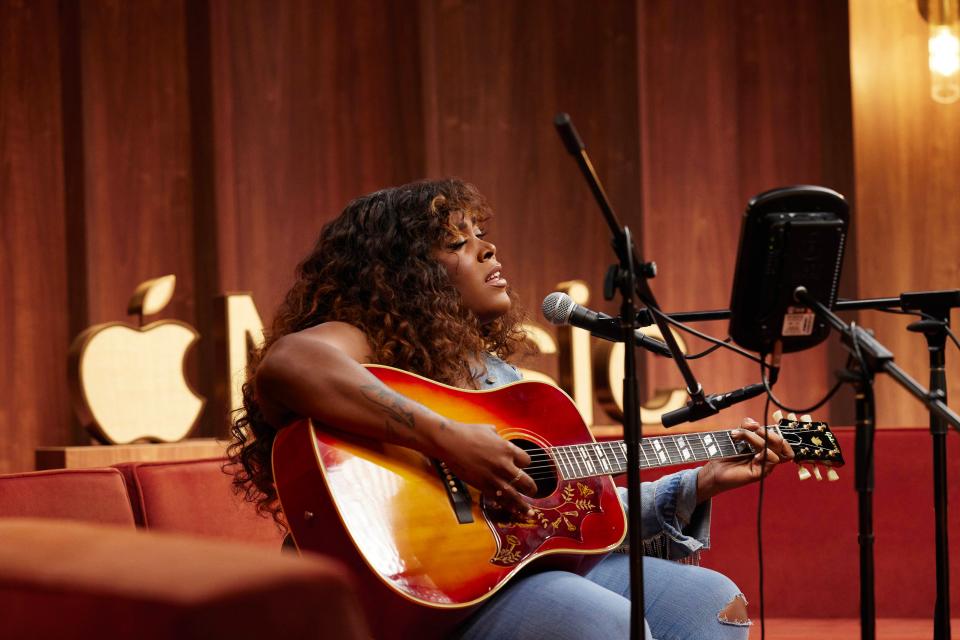
Brittney Spencer in Apple Music Sessions: Beyoncé Covered.
Diana King/Courtesy of Apple MusicJoy Oladokun, “II Most Wanted”
As a first-generation American of Nigerian parents, Country music practically raised Joy Oladokun. Before she moved to Los Angeles and, ultimately, Nashville, Oladokun was raised in Arizona, where she learned to play guitar inspired by Tracy Chapman after growing up listening to both folk and Country as well as reggae and R&B on the radio, the sonic merger of the influences that would later inspire her own future oeuvre.
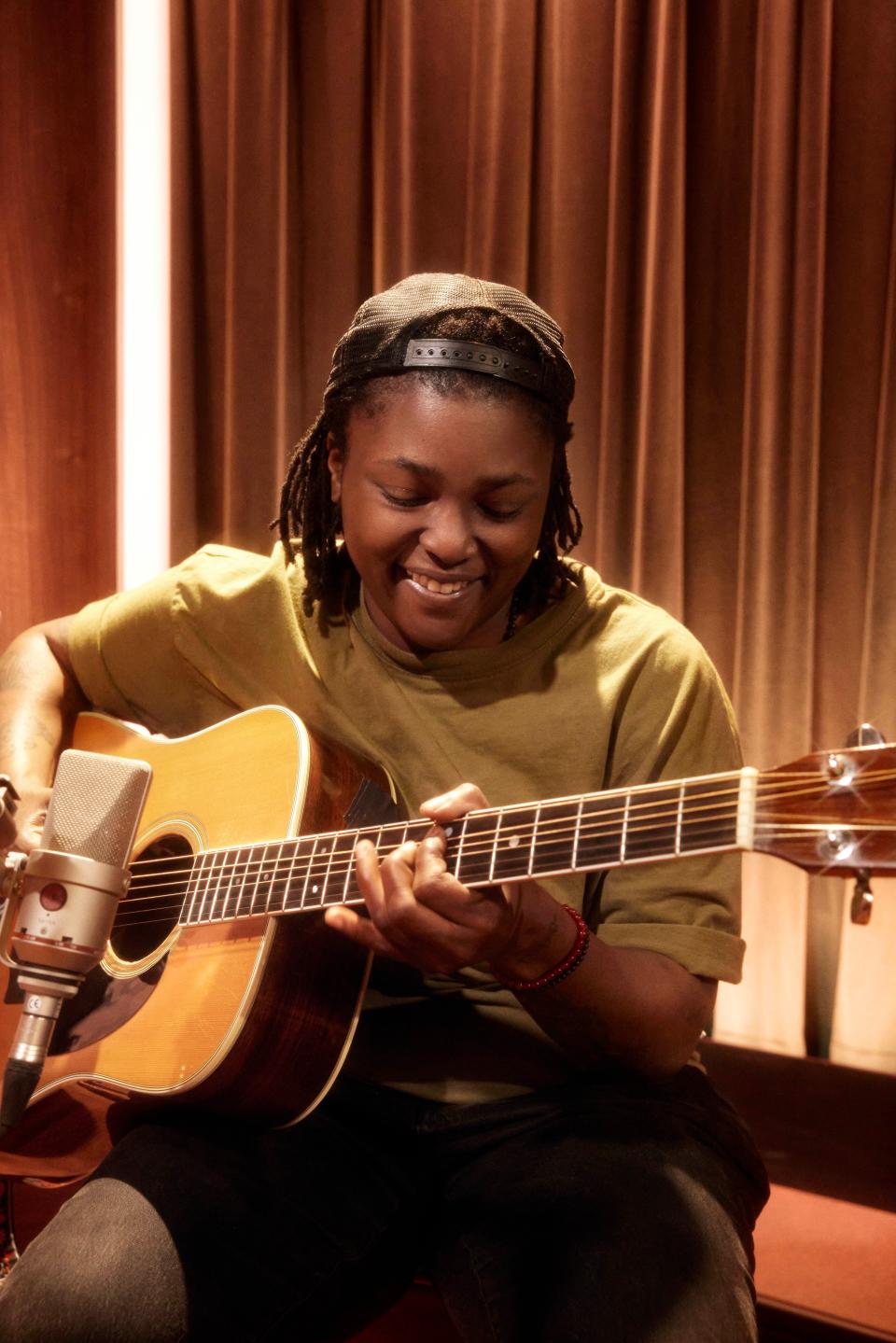
Joy Oladokun in Apple Music Sessions: Beyoncé Covered.
Alyssa Barker/Courtesy of Apple MusicWith four studio albums under her belt, the 32-year-old singer-songwriter is introducing herself to a new wave of listeners with her cover of Beyoncé and Miley Cyrus’s “II Most Wanted” from Cowboy Carter. Speaking of the album and its influence to Apple Music, Oladokun says: “[Cowboy Carter has proven that] audiences of Country music are bigger than we thought, and they don’t look like we thought.”
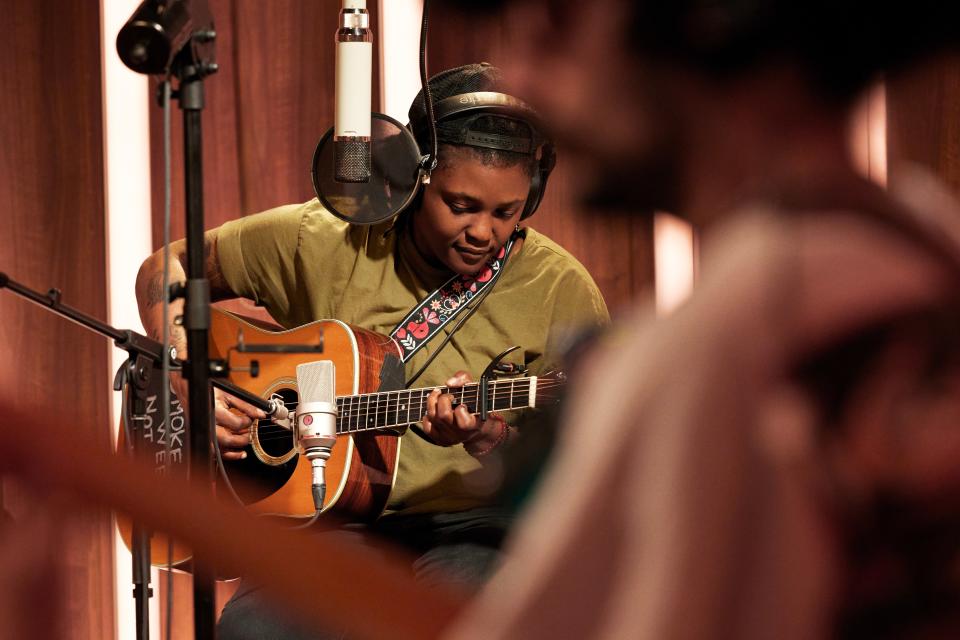
Joy Oladokun in Apple Music Sessions: Beyoncé Covered.
Alyssa Barker/Courtesy of Apple MusicThe Apple Music Nashville Sessions: Beyoncé Covered collection is now available to listen exclusively on Apple Music.
Originally Appeared on Teen Vogue
Want more great Culture stories from Teen Vogue? Check these out:
A New Generation of Pretty Little Liars Takes on the Horrors of Being a Teenage Girl
Underneath Chappell Roan’s Hannah Montana Wig? A Pop Star for the Ages
Donald Glover’s Swarm Is Another Piece of Fandom Media That Dehumanizes Black Women
On Velma, Mindy Kaling, and Whether Brown Girls Can Ever Like Ourselves on TV
Gaten Matarazzo Talks Spoilers, Dustin Henderson, and Growing Up on Stranger Things
How K-pop Stars Are Leading Mental Health Conversations for AAPI People and Beyond
Meet the Collective of Philly TikTokers Making You Shake Your Hips
The Midnight Club Star Ruth Codd Isn’t Defined By Her Disability


